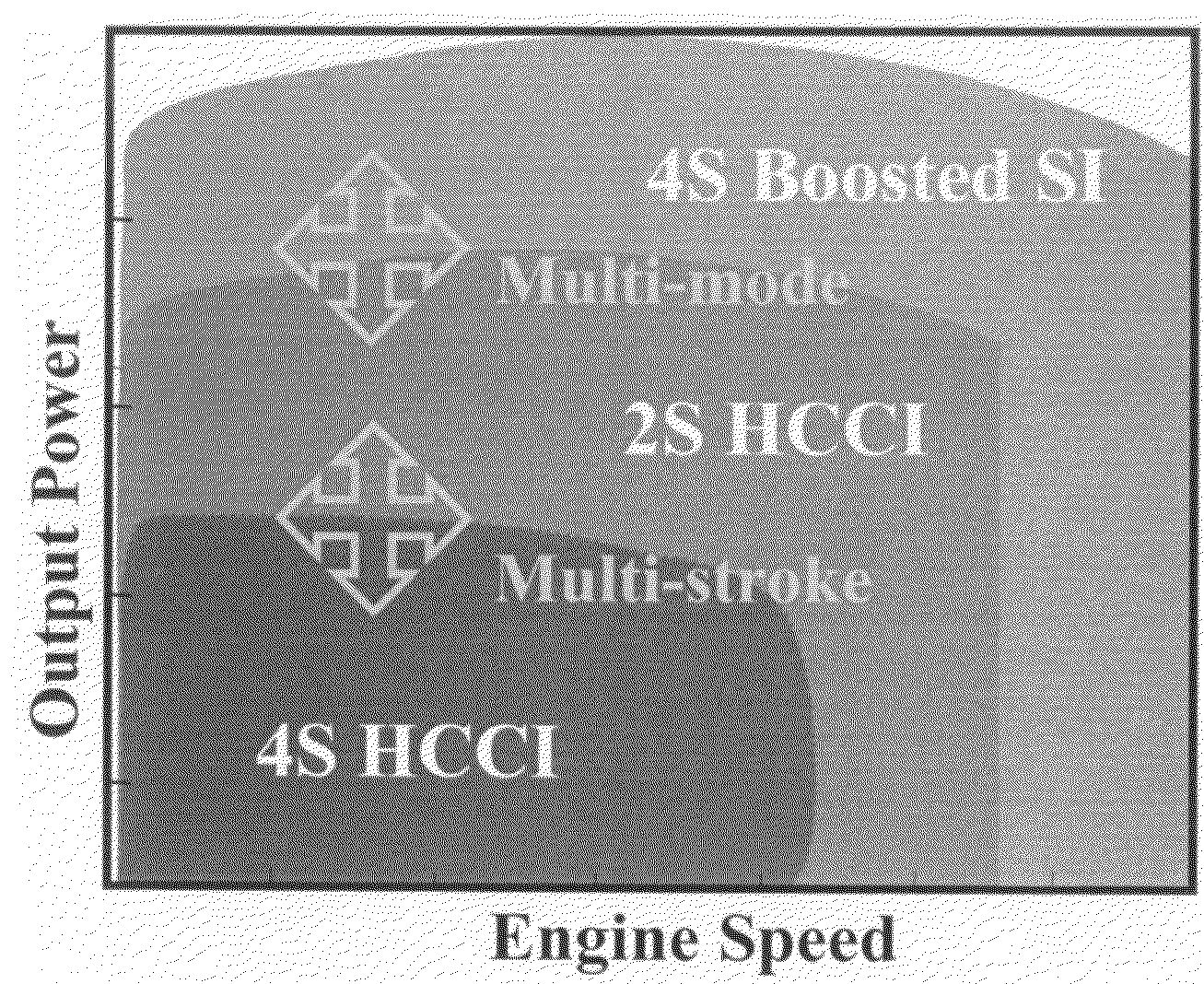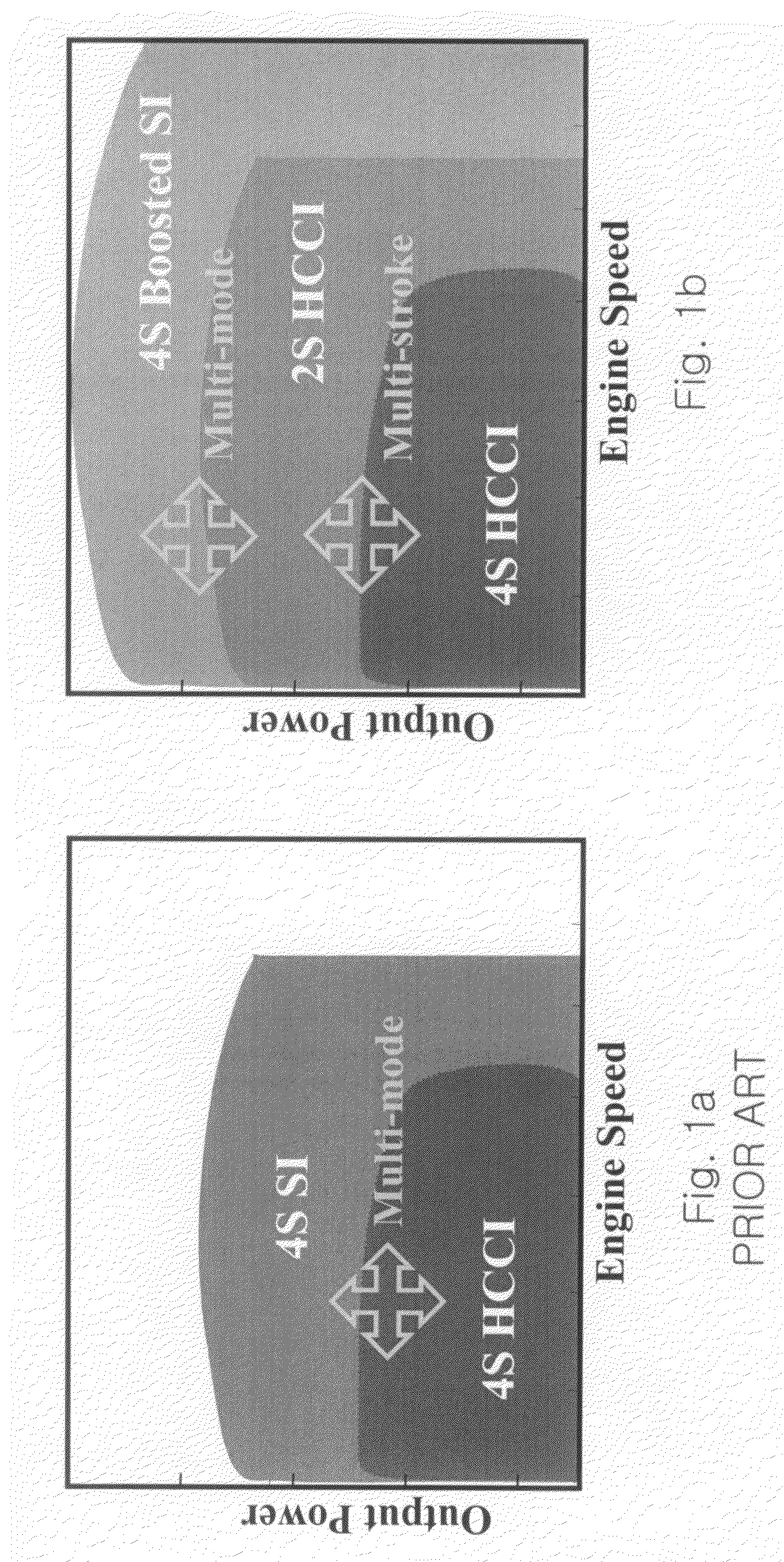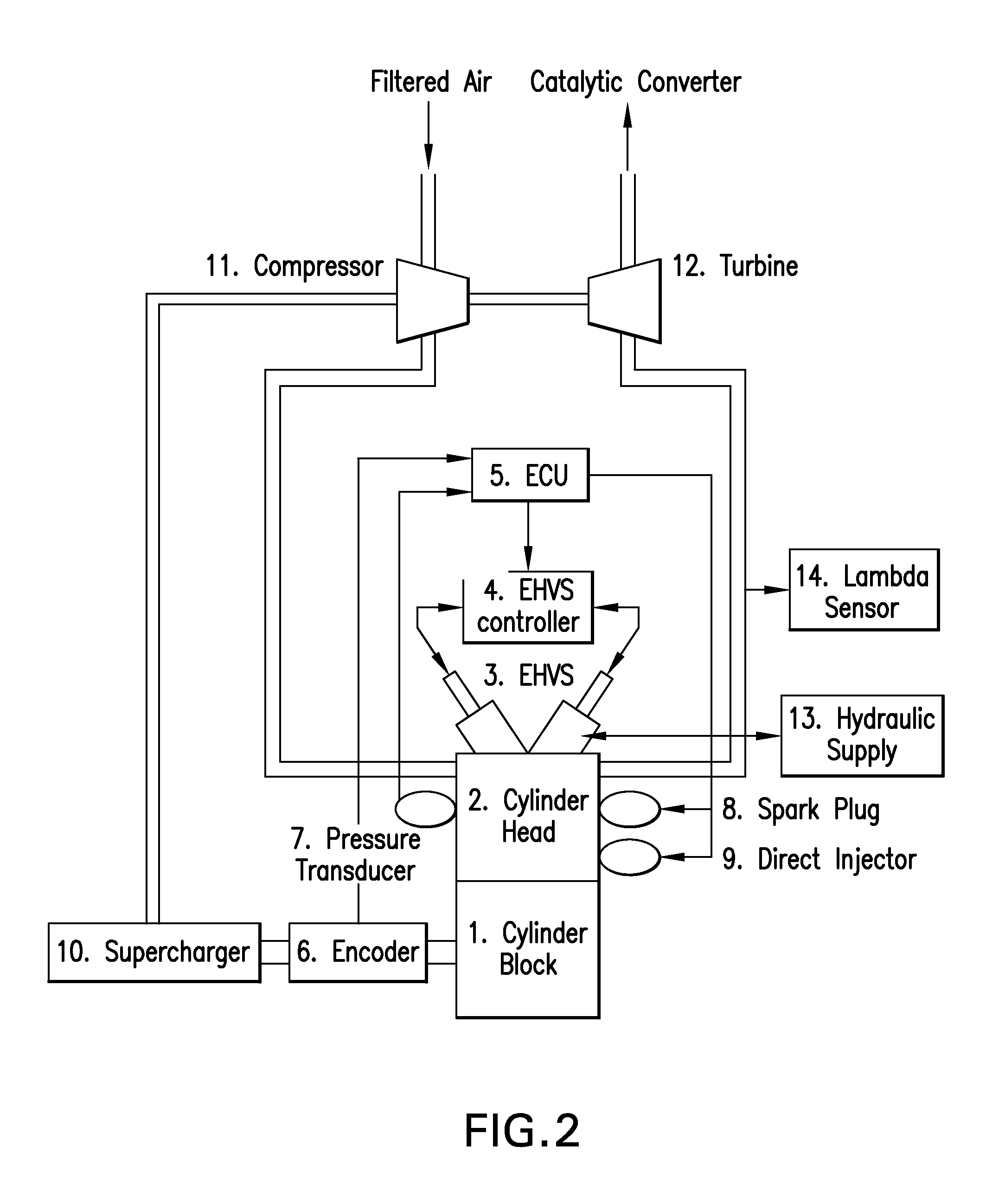Multi-mode 2-stroke/4-stroke internal combustion engine
a technology of internal combustion engine and multi-mode, which is applied in the direction of machines/engines, electric control, instruments, etc., can solve the problems of low efficiency of spark ignition (si) engines, low efficiency in comparison to compression ignition (ci), or diesel engines, and high particulate and nox emission characteristics of ci engines, so as to achieve a wide load range of hcci operation, sacrificing efficiency and emissions advantages
- Summary
- Abstract
- Description
- Claims
- Application Information
AI Technical Summary
Benefits of technology
Problems solved by technology
Method used
Image
Examples
Embodiment Construction
[0020]FIGS. 1a and 1b show the comparison of engine operation strategy between mode switching and mode / stroke switching in terms of output power versus engine speed. FIG. 1a represents the conventional 4S SI / HCCI multi-mode strategy. At low power output, the conventional SI engine suffers lower efficiency mainly due to the intake throttling. Typical HCCI engine uses wide-open-throttle and controls the output power by varying the ratio between exhaust gas and fresh charge, called residual fraction (RF). This dethrottling combined with nearly constant volume combustion process results in higher efficiency of HCCI operation at low power. In addition to the efficiency benefit, HCCI engine minimizes the NOx emissions from the dilution effect as mentioned above. For these reasons, the multi-mode engine is operated in 4S HCCI at low power output region. On the other hand, at high power limit, the RF in HCCI operation should be decreased to provide enough fresh charge, which results in high...
PUM
 Login to View More
Login to View More Abstract
Description
Claims
Application Information
 Login to View More
Login to View More - R&D
- Intellectual Property
- Life Sciences
- Materials
- Tech Scout
- Unparalleled Data Quality
- Higher Quality Content
- 60% Fewer Hallucinations
Browse by: Latest US Patents, China's latest patents, Technical Efficacy Thesaurus, Application Domain, Technology Topic, Popular Technical Reports.
© 2025 PatSnap. All rights reserved.Legal|Privacy policy|Modern Slavery Act Transparency Statement|Sitemap|About US| Contact US: help@patsnap.com



